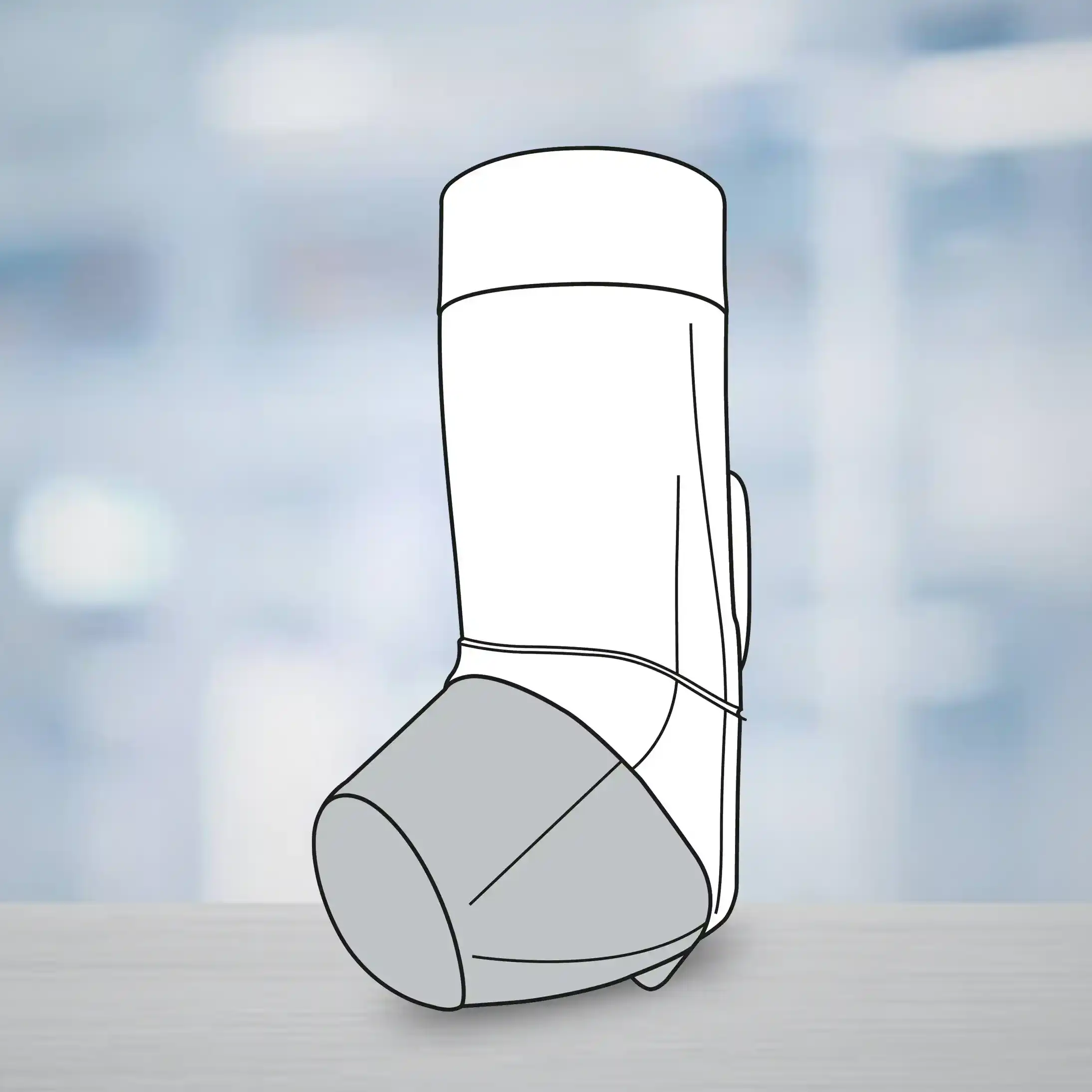Introduction
Metastases are a significant complication of prostate cancer and a leading cause of death among men with the disease. Nearly all men who die from prostate cancer have antecedent metastases to bone or other sites, including the lymph nodes, lung, and liver.
Apalutamide is a nonsteroidal antiandrogen that binds directly to the ligand-binding domain of the androgen receptor and prevents androgen-receptor translocation, DNA binding, and androgen-receptor–mediated transcription agent.
Aim
SPARTAN (Selective Prostate Androgen Receptor Targeting with ARN-509) trial evaluated the efficacy of apalutamide in men with nonmetastatic castration-resistant prostate cancer who were at high risk for the development of metastasis
Patient Profile
Men with nonmetastatic castration-resistant prostate cancer and a prostate-specific antigen doubling time of 10 months or less
Table 1: Patient baseline characteristic
|
Characteristic |
Apalutamide (N = 806) |
Placebo (N = 401) |
|
Age — yr. |
|
|
|
Median |
74 |
74 |
|
Range |
48–94 |
52–97 |
|
Median time from initial diagnosis to randomization — yr |
7.95 |
7.85 |
|
Prostate-specific antigen doubling time |
|
|
|
Median — mo |
4.40 |
4.50 |
|
≤6 Mo — no. (%) |
576 (71.5) |
284 (70.8) |
|
>6 Mo — no. (%) |
230 (28.5) |
117 (29.2) |
|
Use of bone-sparing agent — no. (%) |
|
|
|
Yes |
82 (10.2) |
39 (9.7) |
|
No |
724 (89.8) |
362 (90.3) |
|
Classification of local or regional nodal disease — no. (%) |
|
|
|
N0 |
673 (83.5) |
336 (83.8) |
|
N1 |
133 (16.5) |
65 (16.2) |
|
Previous prostate-cancer treatment — no. (%) |
|
|
|
Prostatectomy or radiation therapy |
617 (76.6) |
307 (76.6) |
|
Gonadotropin-releasing hormone analogue agonist |
780 (96.8) |
387 (96.5) |
|
First-generation antiandrogen agent† |
592 (73.4) |
290 (72.3) |
* There were no significant differences between groups in the demographic and disease characteristics at baseline.
† First-generation antiandrogen agents are flutamide, bicalutamide, and nilutamide.
Methods
- Phase 3 trial Double-blind, placebo-controlled,
- Patients were randomly assigned, in a 2:1 ratio, to receive apalutamide (240 mg per day) or placebo.
- 1207 men underwent randomization
- 806 to the apalutamide group
- 401 to the placebo group
- All the patients continued to receive androgen-deprivation therapy
Endpoint
- The primary end point was metastasis-free survival, which was defined as the time from randomization to the first detection of distant metastasis on imaging or death
- The secondary end points were time to metastasis progression-free survival, time to symptomatic progression, overall survival, and time to the initiation of cytotoxic chemotherapy.
Results
Figure 1: Primary Endpoint: Metastasis-free survival with apalutamide vs Placebo
Secondary Endpoints
- Time to symptomatic progression was significantly longer with apalutamide than with placebo (hazard ratio, 0.45; P<0.001)
- Time to metastasis, progression-free survival, and time to symptomatic progression were significantly longer with apalutamide than with placebo (P<0.001 for all comparisons)
End Point
Apalutamide
(N = 806)
Placebo
(N = 401)
Hazard Ratio
P Value
Secondary end points (mo)
Median time to metastasis
40.5
16.6
0.27
<0.001
Median progression-free survival
40.5
14.7
0.29
<0.001
Median time to symptomatic progression
NR
NR
0.45
<0.001
Median overall survival
NR
39.0
0.70
0.07
Median time to the initiation of cytotoxic chemotherapy
NR
NR
0.44
—
Safety
- The rate of adverse events leading to discontinuation of the trial regimen was 10.6% in the apalutamide group and 7.0% in the placebo group
- The following adverse events occurred at a higher rate with apalutamide than with placebo: rash (23.8% vs. 5.5%), hypothyroidism (8.1% vs. 2.0%), and fracture (11.7% vs. 6.5%)
Table 2: Adverse event
|
Adverse Event* |
Apalutamide (N = 803) |
Placebo (N = 398) |
||
|
|
Any Grade |
Grade 3 or 4 |
Any Grade |
Grade 3 or 4 |
|
|
no. of patients (%) |
|||
|
Any adverse event |
775 (96.5) |
362 (45.1) |
371 (93.2) |
136 (34.2) |
|
Serious adverse event |
199 (24.8) |
— |
92 (23.1) |
— |
|
Adverse event leading to discontinuation of the trial regimen |
85 (10.6) |
— |
28 (7.0) |
— |
|
|
|
|
||
|
Adverse event associated with death |
10 (1.2) |
— |
1 (0.3) |
— |
|
Adverse events that occurred in ≥15% of patients in either group† |
|
|
|
|
|
Fatigue‡ |
244 (30.4) |
7 (0.9) |
84 (21.1) |
1 (0.3) |
|
Hypertension |
199 (24.8) |
115 (14.3) |
79 (19.8) |
47 (11.8) |
|
Rash‡ |
191 (23.8) |
42 (5.2) |
22 (5.5) |
1 (0.3) |
|
Diarrhea |
163 (20.3) |
8 (1.0) |
60 (15.1) |
2 (0.5) |
|
Nausea |
145 (18.1) |
0 |
63 (15.8) |
0 |
|
Weight loss |
129 (16.1) |
9 (1.1) |
25 (6.3) |
1 (0.3) |
|
Arthralgia |
128 (15.9) |
0 |
30 (7.5) |
0 |
|
Falls‡ |
125 (15.6) |
14 (1.7) |
36 (9.0) |
3 (0.8) |
|
Other adverse events of interest |
||||
|
Fracture‡ |
94 (11.7) |
22 (2.7) |
26 (6.5) |
3 (0.8) |
|
Dizziness |
75 (9.3) |
5 (0.6) |
25 (6.3) |
0 |
|
Hypothyroidism‡ |
65 (8.1) |
0 |
8 (2.0) |
0 |
|
Mental-impairment disorder§ |
41 (5.1) |
0 |
12 (3.0) |
0 |
|
Seizure‡ |
2 (0.2) |
0 |
0 |
0 |
* The incidences of the following adverse events in the apalutamide group versus the placebo group were adjusted for exposure (events per 100 patient-years): fatigue (incidence, 32.3 vs. 27.2), hypertension (36.3 vs. 38.7), rash (29.6 vs. 8.3), diarrhea (21.6 vs. 22.6), nausea (15.8 vs. 0.4), weight loss (18.3 vs. 10.5), arthralgia (14.7 vs. 8.0), falls (13.6 vs. 10.0), fracture (10.5 vs. 7.8), dizziness (7.7 vs. 6.6), hypothyroidism (7.6 vs. 2.2), mental-impairment disorder (3.9 vs. 3.4), and seizure (0.2 vs. 0).
† This category includes adverse events that occurred up to 28 days after the last dose of the trial regimen was administered.
‡ These adverse events were considered by the investigators to be related to the trial regimen.
§ Mental-impairment disorders included the following adverse events: disturbance in attention, memory impairment, cognitive disorder, and amnesia.
Conclusion
- In men with nonmetastatic castration-resistant prostate cancer, metastasis free survival and time to symptomatic progression were significantly longer with apalutamide than with placebo.
- Overall survival, time to the initiation of cytotoxic chemotherapy, and second progression– free survival was longer with apalutamide than with placebo
Reference
N Engl J Med 2018;378:1408-18.










